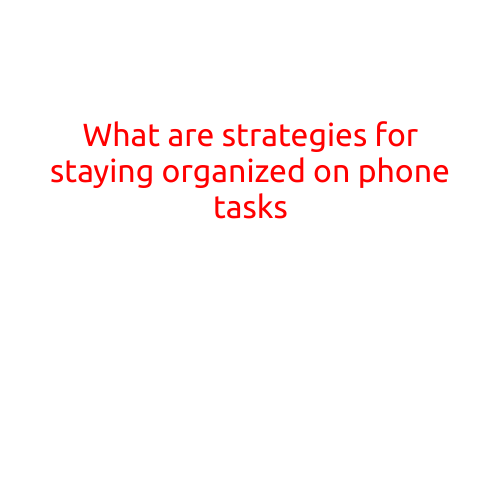
How to Handle Effective Call Management
In today’s fast-paced business environment, effective call management is crucial for any organization to thrive. With the increasing number of customer interactions, phone calls, and inquiries, it can be quite overwhelming for businesses to handle them efficiently. That’s why learning how to handle effective call management is essential. In this article, we will explore the key strategies and techniques to help you streamline your call management process and provide exceptional customer service.
Why Effective Call Management Matters
Before we dive into the strategies, let’s understand the importance of effective call management. Here are a few reasons why:
- Improved Customer Satisfaction: Effective call management ensures that customers’ queries and concerns are addressed promptly, resulting in increased customer satisfaction and loyalty.
- Increased Productivity: By streamlining the call management process, you can reduce the time spent on each call, allowing your team to handle more calls and increase productivity.
- Reduced Abandoned Calls: Effective call management helps reduce abandoned calls, which can lead to lost business and revenue.
- Enhanced Employee Engagement: When employees are equipped with the right tools and strategies, they are more empowered to handle calls efficiently, leading to increased job satisfaction and engagement.
10 Effective Call Management Strategies
Now that we’ve established the importance of effective call management, let’s explore the key strategies to help you achieve it:
- Train Your Team: Provide your team with comprehensive training on effective communication, problem-solving, and conflict resolution skills.
- Set Clear Goals: Establish clear goals and objectives for each call, such as resolving the issue, providing a solution, or scheduling a follow-up appointment.
- Use Call Scripts: Develop a standardized call script to guide your team’s conversations and ensure consistency in communication.
- Prioritize Calls: Identify and prioritize critical calls, such as emergency or urgent situations, to ensure swift resolution.
- Use Technology: Leverage technology, such as call management software, to streamline the call handling process and improve productivity.
- Handle Calls Efficiently: Use a structured approach to handle each call, including greeting, understanding the issue, and providing a solution or escalating the issue.
- Take Notes: Take detailed notes during each call to ensure accurate recording of conversations and to reference later if needed.
- Follow Up: Schedule follow-up calls or actions to ensure issues are resolved and customers are satisfied.
- Monitor and Analyze: Monitor and analyze call metrics, such as call volume, wait time, and abandonment rates, to identify areas for improvement.
- Continuously Improve: Continuously review and improve your call handling process to stay up-to-date with customer needs and preferences.
Conclusion
Effective call management is critical for any organization to succeed in today’s competitive business landscape. By implementing these strategies and techniques, you can significantly improve your team’s performance, customer satisfaction, and overall productivity. Remember to train your team, set clear goals, and leverage technology to streamline the call management process. With a well-planned approach, you can ensure that your business thrives and your customers receive exceptional service.





